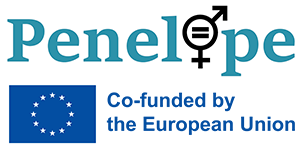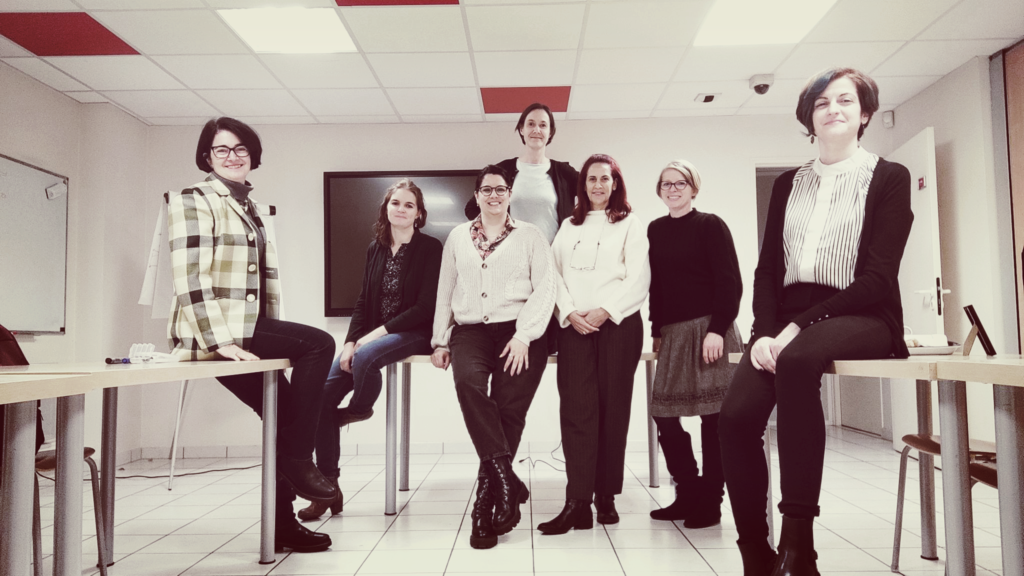On 22nd November 2022, the PENELOPE project, funded by the European Union under the Erasmus+ programme, was launched in Aix-Les-Bains (France) with the aim of offering an innovative and pioneering cluster-based approach to promote and develop gender mainstreaming strategies in European SMEs.
Behind PENELOPE there are five partners from France, Spain, Romania and Austria who have committed to bring their experience, knowledge and expertise, and especially their networks, in a collaborative process to develop innovative formats for capacity building of cluster managers, business managers, cluster policy makers, among other types of stakeholders.
Why PENELOPE?
It is undeniable that women play an important role in the path of EU countries towards a higher level of industrialisation. It is also important to note that industrial development is not a gender-neutral process, and that it can have differential impacts on men and women if gender considerations are not taken into account to ensure equal outcomes with regard to the development and promotion of industrialisation, technology and innovation.
Industrial clusters in Europe account for 61.8 million jobs or about half (46.4%) of employment in exporting industries and almost 1 in 4 jobs in total employment (23.4%).
Moreover, they act as tools of change creating impact and shaping the future of the EU, as it is estimated that improvements in gender equality would lead to an additional 10.5 million jobs by 2050, benefiting both women and men.
As clusters are one of the main drivers of the competitiveness of the EU economy due to their reticular impact on SMEs, it is essential to equip the staff of cluster organizations with an understanding of the basic principles of gender mainstreaming that can be used to customize development interventions in a way that mitigates adverse gender impacts and addresses current gender inequalities in EU industry.
It was therefore natural for the PENELOPE project to pioneer the gender equality approach in the European SME industrial fabric through clusters. The objective of the project is to develop, transfer and implement innovative gender mainstreaming strategies in European SMEs, following a cluster-based methodological approach to build gender-inclusive cultures.
What is PENELOPE’s objective?
To achieve this, PENELOPE will work to:
- Defining specific guidelines for cluster staff on gender mainstreaming, promoting equality between women and men and contributing to a more modern, dynamic, committed and professional environment within SMEs.
- Supporting SMEs in building their gender inclusive cultures through innovative tools on gender equality strategies.
- Facilitating cooperation and dual learning opportunities between industrial clusters and European SMEs to ensure successful gender mainstreaming in their daily work, through new approaches to better support competitiveness and employment development, mainly at local and regional level.
- Develop a methodology for European clusters, following attractive training programs based on participatory approaches and digital methodologies, in line with individual needs and expectations.
What will PENELOPE do?
- Identify good practices among EU clusters and policy makers at regional, national and European level.
- Develop a toolkit for a pan-European gender mainstreaming approach based on interviews.
- Develop a manual for training and evaluation methods.
- Create a set of video pills as useful resources and sources of information on gender mainstreaming and how companies can increase and maintain female participation in the labor market.
- Develop a Virtual Learning Environment, free of charge for five years, that offers adaptive trainings that tailor content to each user based on their previous learning achievements, profile, etc. using gamification techniques.
- A methodology and a guide for trainers and facilitators.
- A toolkit for conducting training workshops.
- Pilot testing of the training workshops.
And, above all, an intense sharing and promotion of all activities, not only in the partner countries, but also in the wider European cluster community.


